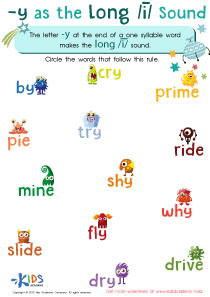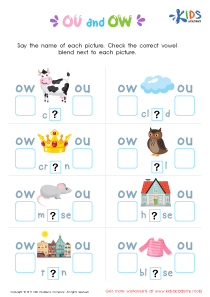Vocabulary expansion Normal Long Vowels Worksheets for Ages 3-7
6 filtered results
-
From - To
Enhance your child’s language skills with our Vocabulary Expansion Normal Long Vowels Worksheets for Ages 3-7. Designed to boost early literacy, these engaging worksheets focus on long vowel sounds, helping young learners recognize, pronounce, and use these critical phonetic elements. Perfect for preschoolers, kindergarteners, and first graders, each worksheet combines fun activities with educational concepts to make learning enjoyable. Through our expertly crafted exercises, children will not only expand their vocabulary but also develop a strong foundation for reading and writing. Unlock your child's potential and ignite their love for learning with our comprehensive collection today!
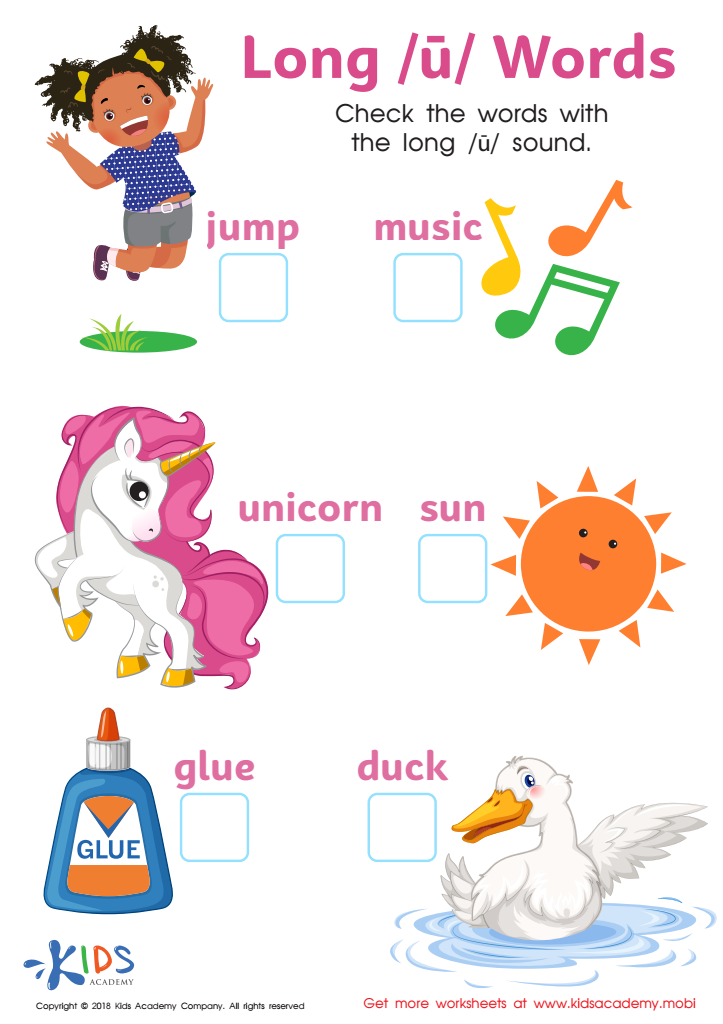

Long U Words Reading Worksheet
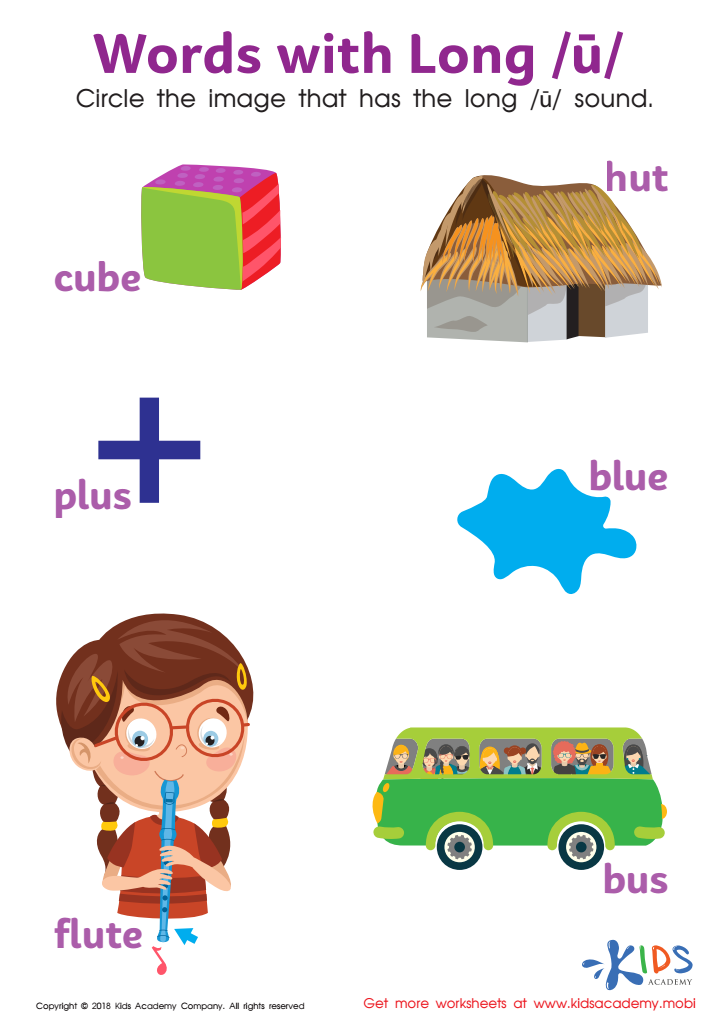

Words with Long U Reading Worksheet


Long and Short U Worksheet
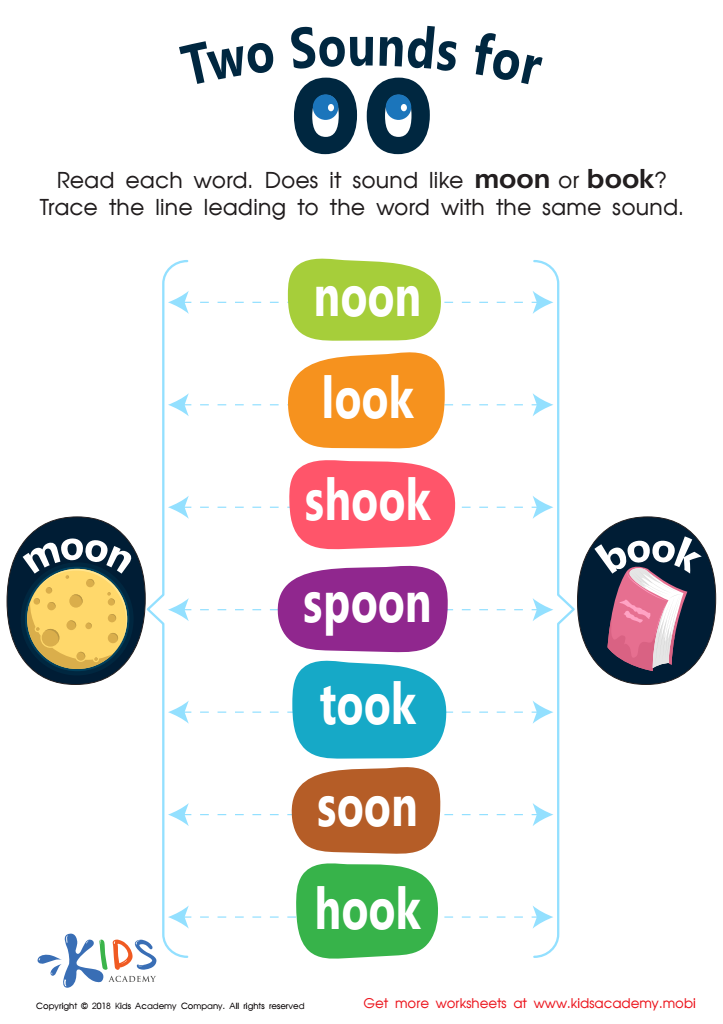

Two Sounds for OO Worksheet
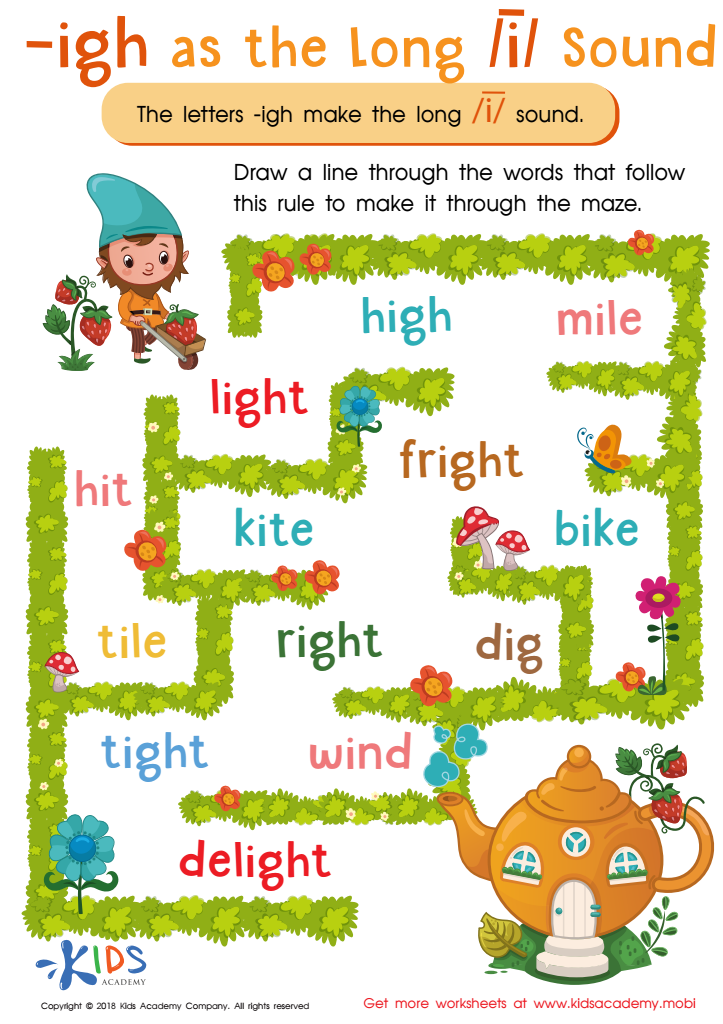

Reading: IGH as Long I Worksheet
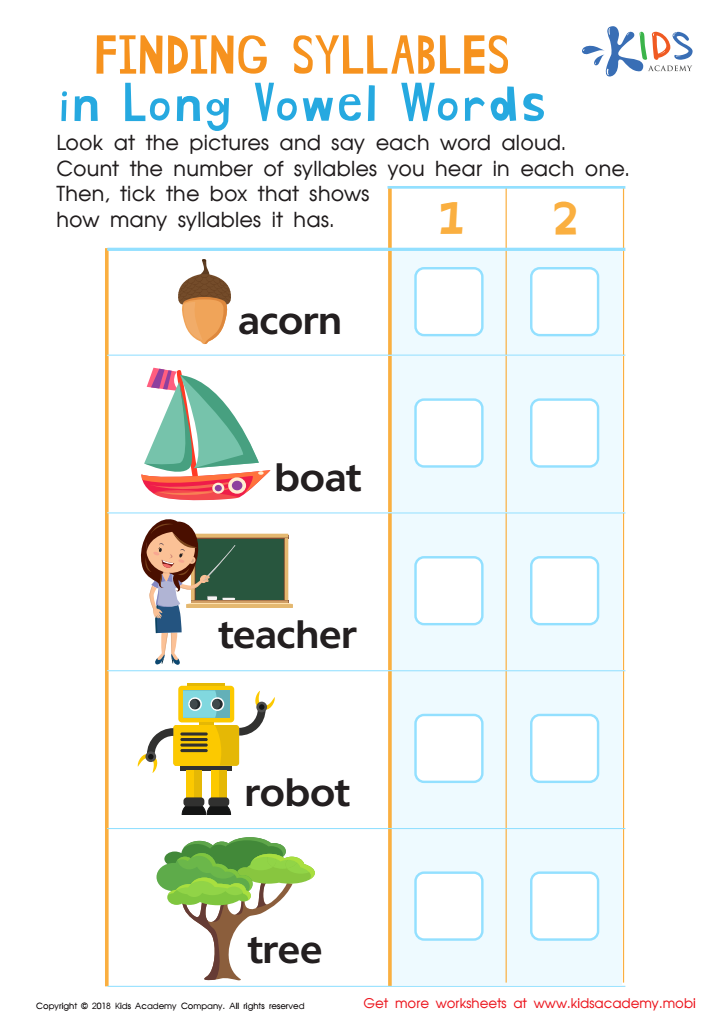

Finding Syllables in Long Vowel Words Worksheet
Vocabulary expansion and the understanding of normal long vowels in children aged 3-7 are crucial for several developmental reasons. At this age, children's brains are extraordinarily receptive to language acquisition, making it an ideal period to build a robust vocabulary foundation. Strong vocabulary skills are linked to better reading comprehension, which is essential for academic success. When children have a broader vocabulary, they can understand and process complex information more easily.
Normal long vowels play a significant role in this linguistic development. These are fundamental sounds in the English language that children frequently encounter. Mastery of long vowel sounds aids in accurate pronunciation, spelling, and reading fluency. For instance, understanding that the long "a" sound can be represented as "a," "ai," or "ay" helps children decode words and recognize patterns.
Parents and teachers should care because early vocabulary skills and phonemic awareness are predictors of future literacy achievements. Children who enter school with strong language abilities are more confident learners, often performing better academically. By focusing on vocabulary expansion and normal long vowels, parents and teachers equip children with the tools they need for effective communication, fostering better educational and social outcomes. Encouraging a love for language at this stage sets a positive trajectory for lifelong learning.
 Assign to My Students
Assign to My Students









